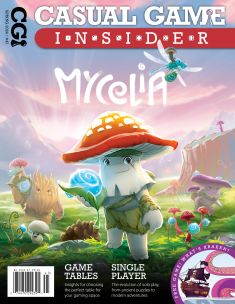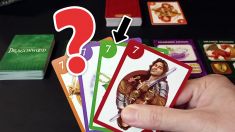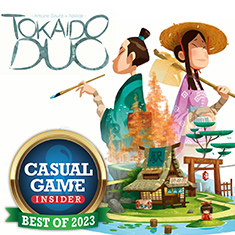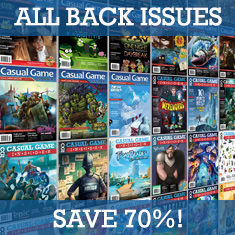But Wait, There's More! An Interview with Game Design Duo Sen-Foong Lim and Jay Cormier: Page 3 of 4
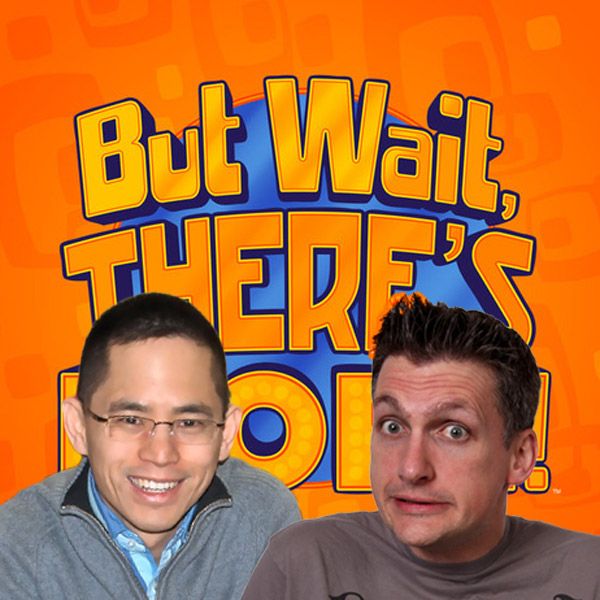
CGR: You guys have been published by several different publishers. Do you have any tips for aspiring game designers on how to approach publishers with a new game?
Sen: Here are 3 for you:
1). Know your product and know your audience. Make sure you research who you're pitching your game to in terms of their current library, strengths, limitations, reputation, etc. Know if your game is a good fit for them thematically, mechanically, cost-wise, etc. There are companies that only publish micro games, others that will not publish games with violence, etc. So do your best to pick "the one" game to show a publisher if you make contact and only offer to show more at their request. You have to network and learn about the different publishers if you want to go that route; you should try your hardest to go to conventions and shake hands and play games with the movers and shakers of the industry.
2). Clear rules are more important than a pretty prototype. Wording, iconography and layout are more important in communicating your game's intent than illustrations or flavour text. Focus on getting the core mechanics across to the publisher as many will retheme a game anyway. Make sure your components are robust enough to survive transit and several playthroughs. 100% ensure that your game can be played without you at the table - blind testing is an excellent way to ensure that your rules are interpreted as you intended.
3). Probably most important early on is to get comfortable with the idea of failure and that failing faster is a good thing. Get your game on the table as quickly as you can and in front if as many different players as you can. Get it out of your head and onto the table so it can take on a life of it's own and the game can emerge and evolve from interaction with players.
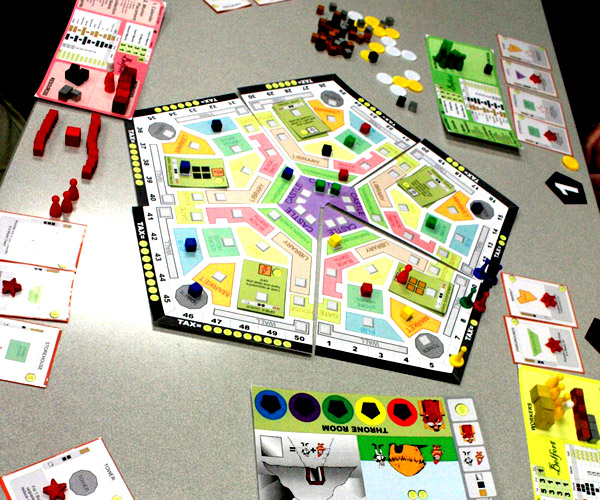
One of our final prototypes of our game, Belfort! This is the quality of prototype that we pitched to publishers. You see how the art is very basic (clip art in some cases) but it’s very clean and everything serves a purpose, which is to make the game play smoother and easier!
Jay: I’ll focus on actually approaching the publisher part of game design:
1) You have to be so good at communicating efficiently. You have very little time with any publisher that you need to be able to get your idea across in as few words as possible. What can help here? Well, you can start by being the person who explains rules to other games you play at your local game night. This is crucial as you start to learn what people need to know early on and what kind of things can wait until later. You can also create a sales sheet for your game that has some pictures and information about your game. Publishers love these! And they will help you focus your pitch - especially those times when you don’t have time or space to actually set up any demo - and you can only use your sales sheets. These have helped us so much in the past!
2) Being yourself and having some charm and being nice is a big plus. This one’s hard to teach and hard to learn. I’ve learned it through tons of theatre and improv. A lot of designers can get nervous and either be too quiet or too sycophantic during the pitch. You need to be confident in your game and why it’s so awesome!
3) Listen, listen, listen! When the publisher speaks - really listen to what he/she is saying. Then respond in a way that shows you were listening. “Oh I see, so you’re thinking it might take too long with 5 players…that’s a valid concern. We’ve played it with 5 and noticed that it did take on average 15 minutes longer - but that still brought it in under 2 hours for the whole game.” Something like that! Sometimes you have to ‘fight’ for your game and defend its merits and other times you need to realize that this game is not for this publisher and move on.
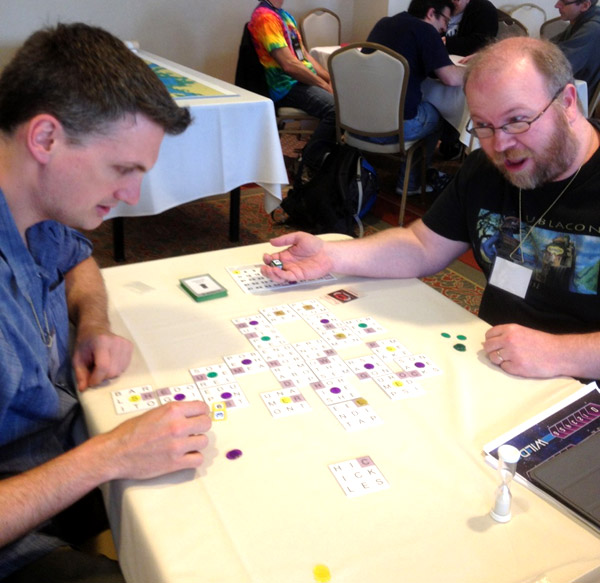
Here’s Jay pitching/playing Lost for Words with Ed from Toy Vault. Word games are hard to find publishers for but I think Ed had a good time with the game! While he’s not picking up this game from us, he did ask us to help Toy Vault design a Godzilla card game which we’re working on right now!
Next Page: A Sneak Peek at Sen and Jay's Upcoming Games






